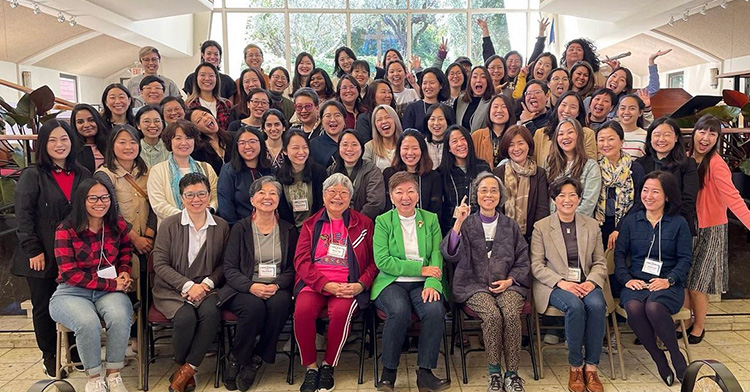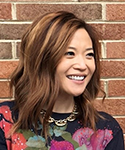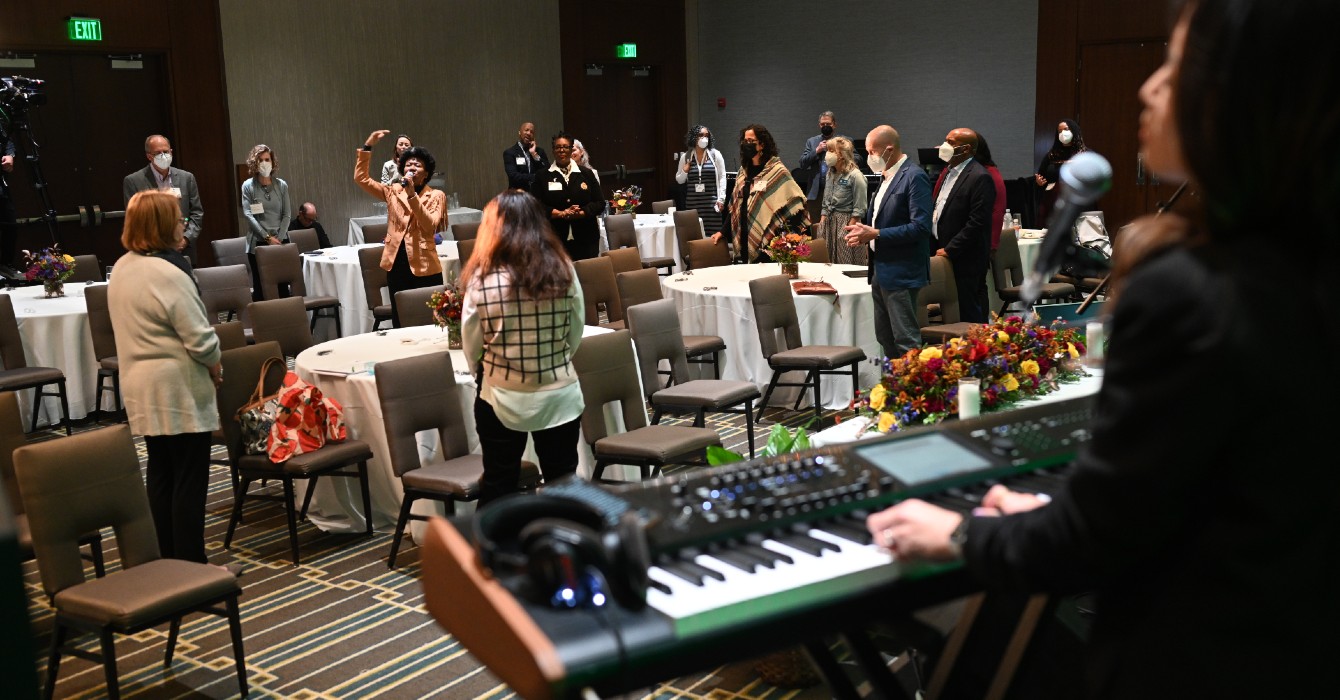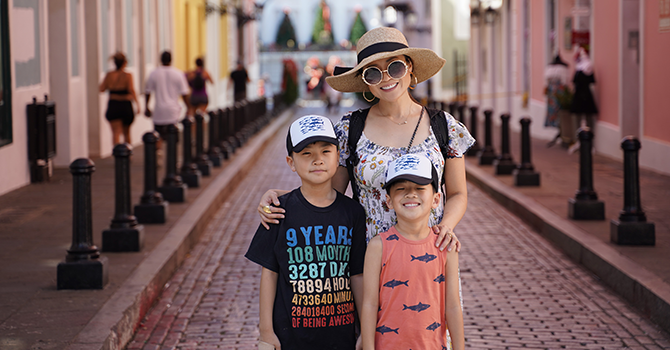I stumbled upon the work of Kwok Pui Lan a few years ago, after I found myself yearning for some answers. Surely there were people like me, Asian American, who were doing the work of traditioned innovation, holding the transformative work of Christ in tension with an ever-evolving world that prioritizes efficiency, capital growth and fast trends. Surely there were people who understood what it meant to fuse together a hybrid identity of being uniquely Asian and American at the same time. People who, because of this hybrid experience, could relate to Christ as being both God and human at the same time, in a specific way.
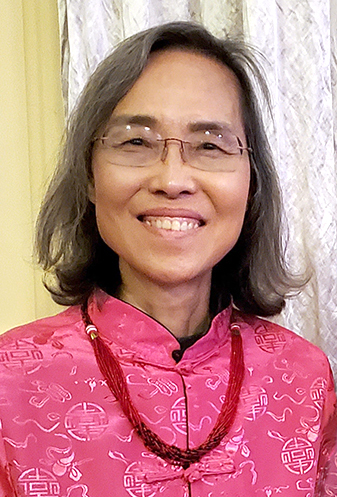
Kwok is one of the matriarchs of Asian American theology and a co-founder of the Pacific, Asian, and North American Asian Women in Theology and Ministry — PANAAWTM (pronounced “pan-autumn”) for short. In the group’s anthology “Off the Menu: Asian and Asian North American Women’s Religion and Theology,” I finally read biblical and theological material that resonated deeply for me, to the degree that I did not realize how I had contorted myself or shifted my framework to interpret Scripture and understand my faith.
Years later, as a student at Duke Divinity School, I attended my first PANAAWTM conference, hoping to meet Kwok. As we approached the dining hall for the welcome dinner, there she was — a founding leader of this amazing group of Asian American theologians and scholars — greeting us in an apron and waving us into the buffet line with her chopsticks before dishing up noodles on each of our plates. I could have cried right then and there if I hadn’t been so hungry for the delicious food.
Since then, I’ve seen her at many different conferences and have become more involved with PANAAWTM, continuing to be in awe of her. In every space, she brings much-needed wisdom and conviction into the room. I took furious notes at the academic panels that she convened and facilitated. I participated in tai chi in sessions she led as a contemplative and spiritual practice. And I sang and wept as she led an open Zoom call to lament and grieve after the Atlanta spa shootings in 2021, an experience so powerful that I wrote about it.
My respect for Kwok has only grown as I’ve gotten to know her. We talked recently for Faith & Leadership about the concept of her specific spiritual formation. We also discussed how important it is to see and learn from “identity markers” — people who are not only like-minded but body-minded — in the vast diaspora of Christian traditions as we think about innovating from them. The following is an edited transcript of our conversation.
Angie Hong: One thing that I’ve really appreciated about your work and the work of PANAAWTM is the emphasis on storytelling and other spiritually formative practices. What led you to develop those resources and create community with others who are Asian and Asian American?
Kwok Pui Lan: I have a unique background. Many people ask me — because I’m a postcolonial theologian — why I belong to the Anglican church. I happened to be born in the British colony of Hong Kong. My parents were not Christians, and when I was a kid, a neighbor of mine brought my elder sister and me to church. That happened to be an Anglican church. Not only that, but my Anglican church in Hong Kong is also called Holy Trinity Church. It looks like a temple or a Chinese building because it is one of the three churches in Hong Kong that were built in a Chinese architectural style.
When I became a Christian several years later, I had a female deacon who became one of the early women priests in the whole Anglican Community in 1971. Because of her influence, I decided to go to college to study theology.
Can you imagine — my church is in Chinese architectural style, in the British colony of Hong Kong, and I had a woman priest when I was a teenager? This was also the turbulent ’70s, when I was beginning to study theology. The orientation showed a video of the president of the student union arrested because of his involvement in student protests.
You can see that the seeds of my work have been sown all along my life journey. I began to write about my own story, and suddenly my very particular story became a story that other people could see themselves in.
When I travel, I have so many AAPI [Asian American and Pacific Islander] sisters telling me, “Pui Lan, I’m just so grateful you wrote this book (or whatever) that my professor assigned, because I also found myself in what you said.” So it was very gratifying. I became a scholar because of the encouragement of my professors. But I became a published theologian because of the encouragement of my readers.
AH: You have had these identity markers that were helpful to your formation, such as architecture, protests, female leadership and the British Empire. And then, through your writing and scholarship, you became an identity marker for people in the United States. Do you see other identity markers? Do you see them growing?
KPL: When I began teaching in the United States in the early ’90s, I asked my students, “Have you ever had an Asian teacher before?” Many said no. I think even fewer said they’d ever had a woman professor who teaches theology, because this was a field that didn’t have many women.
I think now, of course, we have more, but we still don’t have many Asian or AAPI women teaching theology, the Bible and religion. These are all very important subjects that need more AAPI representation.
One of the issues that I am really concerned about is the geopolitical changes in the Asian Pacific. I am from a Chinese background. I saw the rise of China in the last several decades and so hope to help the AAPI community and the wider American community understand what is going on in China and this Sino-American competition.
China used to be one of the biggest mission fields. Many churches and denominations were much-involved in missionary work in China. I want to share the church’s involvement in China back then and now in civil society because, while on a national level or state level there might be confrontation or competition, [churches can] help each other understand from a people-to-people perspective.
AH: As a token Asian or minority, I think that there is so much pressure and temptation to assimilate to majority society, and even in theology. What was that like for you?
KPL: In graduate school, I was exposed early on to not only white feminist theology but also Black and Hispanic feminist theology. That is why this PANAAWTM network has been very helpful for me. It was started with a group of Asian and Asian American women, but it was called together by Dr. Letty Russell of Yale Divinity School. She was very much involved in anti-racism work in the 1980s. Through Letty, I had the unique fortune of being connected to Katie Cannon, Ada Maria Isasi-Diaz and others when we were all just starting out or just finishing up our doctoral studies.
That was a very important moment, because of the blossoming of so many diverse voices.
Before that, when we attended the American Academy of Religion, there was no divvying up of all these groups. There was just one group, called Women and Religion. We were all there. In 1985, the womanist group was formed. And then years later, the Asian North American group formed, and that is why, for me, it was very exciting.
PANAAWTM began almost 40 years ago, and because of this network, we were able to learn from each other. I, of course, had my identity as Asian — right? — at that time, as an international student. It was in PANAAWTM that I fully understood how different we were … by dancing!
Rita Nakashima Brock, a Japanese American theologian, and some others came and danced with American moves. We Chinese didn’t dance like that. And then the Thai folks were dancing another way. The Koreans were dancing another way. And then I said, “Oh wow, talk about embodiment — they are very different from us.” And then we began talking for decades.
That is why a network like PANAAWTM became a community of discourse that we learn from each other: story, cultures and open dialogue. That is what I think the beauty of such an organization is. Now we have three generations.
AH: In your most recent years being a professor, what do you think is needed for young people and AAPI organizations to keep building communities of discourse and future identity markers?
KPL: I think we just need to have some kind of encouragement for innovative things. I belong to the Anglican church, and we’ve lost so many members in the last 10 years. This is the same for other mainline denominations. Young people are not going to church.
I am not thinking of church growth. If the young people are not interested in the traditional form of church, what are some of the alternatives we can provide for them or that they might be interested in? What are the different ways of seeking meaning, and how can we help and facilitate?
Capacity building is also very important, because in my professional career, I have seen many women’s small organizations come and go. They did not continue for various reasons, especially when the first generation of leaders moves on or retires. I think talking about capacity building [is important] so the work can be passed on, grow and flourish.

